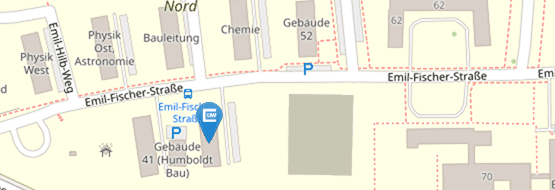Oberseminar Wissenschaftliches Rechnen (Dr. Remo Kretschmann)
Optimal and Bayesian regularized hypothesis testing in statistical inverse problems
| Datum: | 14.02.2023, 14:15 - 15:30 Uhr |
| Kategorie: | Veranstaltung |
| Ort: | Hubland Nord, Geb. 30, 30.02.003 |
| Veranstalter: | Lehrstuhl für Mathematik IX (Wissenschaftliches Rechnen) |
| Vortragende: | Dr. Remo Kretschmann |
Abstract:
In many inverse problems, one is not primarily interested in the whole solution u†, but in specific features of it that can be described by a family of linear functionals of u†. We perform statistical inference for such features by means of hypothesis testing.
This problem has recently been treated by multiscale methods based upon unbiased estimates of those functionals [1]. Constructing hypothesis tests using unbiased estimators, however, has two severe drawbacks: Firstly, unbiased estimators only exist for sufficiently smooth linear functionals, and secondly, they suffer from a huge variance due to the ill-posedness of the problem, so that the corresponding tests have bad detection properties.
One way to overcome both of these issues is by considering hypothesis tests with maximal power among a class of tests based upon linear estimators with a given level of significance. While the construction of such optimal tests requires knowledge of the true solution u†, we present a way to compute approximately optimal hypothesis tests adaptively.
Another way to overcome aforementioned issues is by considering the problem from a Bayesian point of view, assigning a prior distribution to u†, and using the resulting posterior distribution to define regularized hypothesis tests. We study both of these approaches analytically and numerically for linear inverse problems and compare them with unregularized hypothesis testing.
[1] K. Proksch; F. Werner; A. Munk (2018). Multiscale scanning in inverse problems. Ann. Statist.,
46(6B), p.3569–3602, doi:10.1214/17-AOS1669






